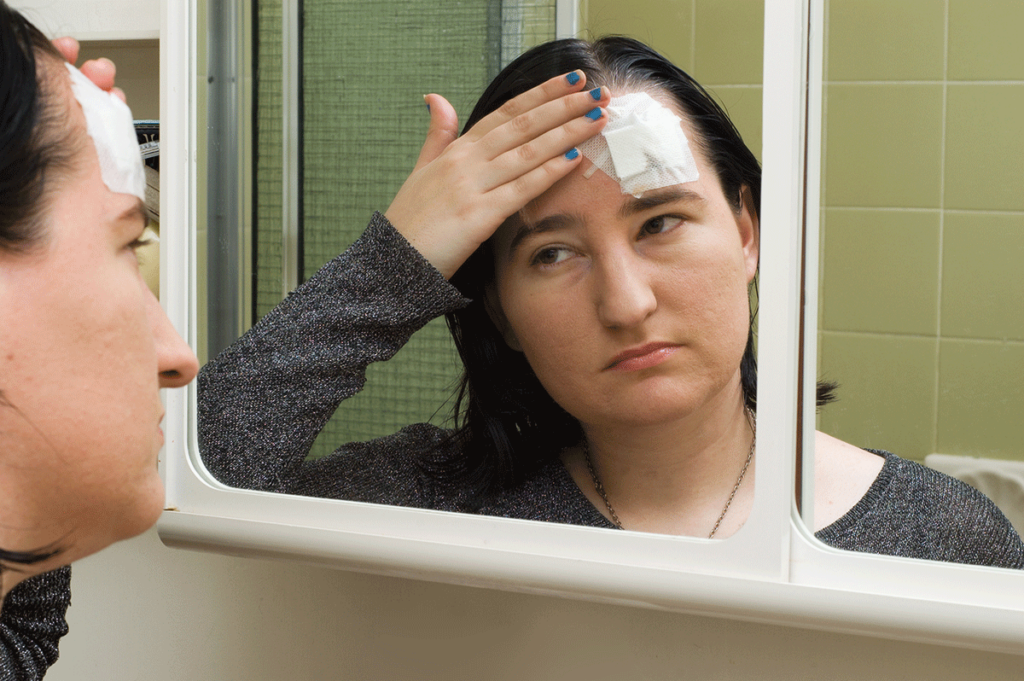It’s dangerous to drink during the initial period of recovery after a concussion, but can you drink with post-concussion syndrome? If you’re unable to stop drinking, it’s likely a sign of an alcohol use disorder and an indication that you may need alcohol addiction treatment in order to recover.
Alcohol addiction treatment at Promises can help you recover from both post-concussion syndrome and alcohol addiction simultaneously. Reach out to our team by calling 844.875.5609 to learn more about our comprehensive treatment options.
Post-Concussion Syndrome and Alcohol
Post-concussion syndrome is the label used to describe when the symptoms of a concussion last longer than two weeks. Most people will achieve a full recovery from a concussion in this period, but people with post-concussion syndrome have lingering effects, such as:
- Sleep difficulties
- Mood changes
- Memory or attention problems
- Headaches, dizziness, or sensitivity to light and sound
Researchers estimate that just ten percent of people who have a concussion will experience post-concussion syndrome. While it is uncommon, you are not alone. But can you drink with post-concussion syndrome, or is it still dangerous to your brain’s recovery?
Alcohol’s Effects on Brain Recovery
Alcohol is a central nervous system depressant, which means it slows down the brain’s activity and several automatic processes, such as breathing. This is what produces the well-known effects of alcohol, including feeling relaxed, disinhibited, and drowsy.
But drinking alcohol after a concussion can also slow down the rate of your brain’s healing. A concussion is a form of traumatic brain injury, and the brain needs time to heal from the damage it received in order to make a full recovery.
Drinking alcohol inhibits this process and can also lead to poor decision-making abilities that can further complicate your healing process.
Additionally, alcohol is a neurotoxin. Drinking while you have post-concussion syndrome means your body needs to split its energy into two different processes: healing the concussion and removing alcohol from the bloodstream. This can lead to an incredibly overtaxed system, delaying your full recovery and leaving you feeling exhausted.
Alcohol and Post-Concussion Syndrome Side Effects
But there is another risk factor with drinking while having post-concussion syndrome. Many of the symptoms that are common in people with post-concussion syndrome are amplified by the effects of alcohol. People can act out of character and potentially put their recovery at risk.
For example, mood and behavioral changes are common in people with post-concussion syndrome. People can experience changes such as:
- Irritability
- Anger
- Confusion
- Difficulty concentrating
Alcohol use can produce several of the same symptoms, and when you drink with post-concussion syndrome, these effects can become exaggerated. If the mood changes you’re experiencing with post-concussion syndrome are troubling to you, drinking alcohol is likely to make them even worse.
This extends to other effects as well, such as the feeling of chronic fatigue, vision changes, and sleep difficulties. All of these symptoms are shared between alcohol use and post-concussion syndrome.
Can You Drink with Post-Concussion Syndrome? Find out at Promises
If you’re living with post-concussion syndrome and aren’t able to stop on your own, it’s likely a sign of an alcohol use disorder. People living with an addiction are often unable to stop on their own, even in the face of worsening physical and mental health effects exacerbated by their drinking.
Thankfully, researchers have developed several evidence-based methods to treat alcohol use disorder. At Promises, our team of dedicated medical and mental health experts can help you break free from your addiction and achieve a lasting recovery.
Call Promises at 844.875.5609 to learn more about our comprehensive treatment options and start your path to sobriety today.

